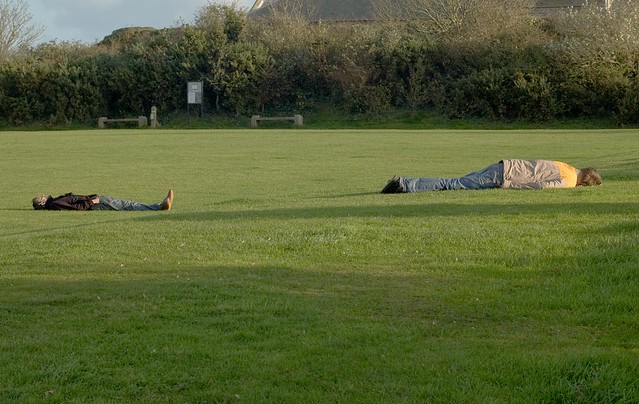hebetude /HEB-ə-tood/. noun. A state of torpor, dullness, lethargy or languor. From Latin hebes (blunt, dull).
For many hours he remained apparently forgotten, stretched lifelessly on the floor. From that solitude, full of despair and terror, he was torn out brutally, with kicks and blows, passive, sunk in hebetude. He listened to threats and admonitions, and afterwards made his usual answers to questions, with his chin sunk on his breast…
(Joseph Conrad)
How soon my soul repairs its fault
When, sharpening senses’ hebetude,
She turns on my own life! So viewed,
No mere mote’s-breadth but teems immense
With witnessings of providence…”
(Robert Browning)
There is, however, a cerebral (brain) phase of spermatorrhœa which may be separated from the two preceding classes. It is characterized by indistinctness of vision, dilatation of the pupil, amblyopia (near-sightedness), diplopia (double sight); diminution in the sensitiveness of the auditory apparatus (deafness); feebleness of voice; mental preoccupation, hebetude of mind, confusion of ideas, and a profound melancholy.
(from Manhood Perfectly Restored: Prof. Jean Civiale’s Soluble Urethral Crayons as a Quick, Painless, and Certain Cure for Impotence, Etc.)




